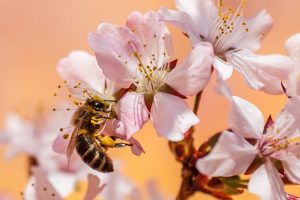 With growing season in full swing, we spend many hours weeding, planting, and watering our lovely flowers and (struggling) lawn. Spending time outdoors invigorates our souls and brings us joy.
With growing season in full swing, we spend many hours weeding, planting, and watering our lovely flowers and (struggling) lawn. Spending time outdoors invigorates our souls and brings us joy.
And Genesis 1:1 tells us where gardening began: In the beginning God created the heavens and the earth. From this verse and the rest of chapter 1 we learn about our planet, vegetation, the animal kingdom, and the atmosphere—the very elements that sustain human life. As physical beings we are both curious about our current home and amazed at the fact that God designed it all for us!
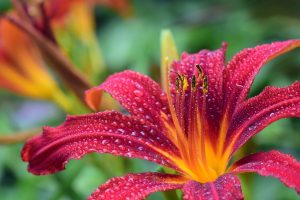 John 1:1-4 provides greater insight into God’s plan. In the beginning was the Word, and the Word was with God and the Word was God . . . All things came into being through Him . . . In Him was life, and the life was the Light of men. Jesus is the Word of God, eternally one with the Father, the sole source of vibrant life that we all desire. The life Jesus offers is the “light of men.”
John 1:1-4 provides greater insight into God’s plan. In the beginning was the Word, and the Word was with God and the Word was God . . . All things came into being through Him . . . In Him was life, and the life was the Light of men. Jesus is the Word of God, eternally one with the Father, the sole source of vibrant life that we all desire. The life Jesus offers is the “light of men.”
 As humans we are both physical and spiritual creatures, wanting to understand and enjoy our terrestrial home but longing to fathom the One who made life possible. That’s why Genesis 1 and John 1 both reveal what happened “in the beginning.” Genesis focuses on the physical and John on the spiritual.
As humans we are both physical and spiritual creatures, wanting to understand and enjoy our terrestrial home but longing to fathom the One who made life possible. That’s why Genesis 1 and John 1 both reveal what happened “in the beginning.” Genesis focuses on the physical and John on the spiritual.
Two kings of Israel portray the importance of understanding both our physical and spiritual natures. King Solomon often referred to nature as his teacher. I Kings 4:33-34 says of Solomon, He spoke of trees, from the cedar that is in Lebanon even to the hyssop that grows on the wall; he spoke also of animals and birds and creeping things and fish. Men came from all peoples to hear the wisdom of Solomon, from all the kings of the earth who had heard of his wisdom. In Proverbs he pointed to creatures as examples, such as ants teaching diligence and planning (6:6-8) and locusts revealing the power of organization (30:27). But Solomon, focused only the physical realm, ultimately found his life meaningless. (Read Ecclesiastes.)
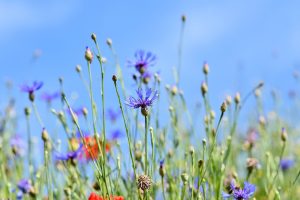 King David, however, while appreciating lessons from nature, ultimately sought the Creator Himself. David authored at least 73 of the 150 Psalms. In some he poured out his anger or fear. In others he praised God. And in Psalm 119 (which scholars attribute to David) he concentrated on the glories of God’s Word. David believed in God’s goodness, power, and wisdom. In David’s eyes, wonderful as it was, nothing in creation compared to God. And in Acts 13:22 God calls David a man after His own heart, because David had both physical and spiritual understanding.
King David, however, while appreciating lessons from nature, ultimately sought the Creator Himself. David authored at least 73 of the 150 Psalms. In some he poured out his anger or fear. In others he praised God. And in Psalm 119 (which scholars attribute to David) he concentrated on the glories of God’s Word. David believed in God’s goodness, power, and wisdom. In David’s eyes, wonderful as it was, nothing in creation compared to God. And in Acts 13:22 God calls David a man after His own heart, because David had both physical and spiritual understanding.
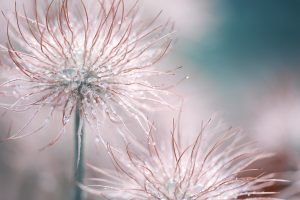 For since the creation of the world His invisible attributes, His eternal power and divine nature, have been clearly seen, being understood through what has been made, so that they are without excuse (Romans 1:20). If we glory in nature but ignore its Creator, we’re missing the point.
For since the creation of the world His invisible attributes, His eternal power and divine nature, have been clearly seen, being understood through what has been made, so that they are without excuse (Romans 1:20). If we glory in nature but ignore its Creator, we’re missing the point.
As you tend your own garden, admire the results of others’ green thumbs, or walk through a park, consider the Master Gardener –because all of creation points to God.

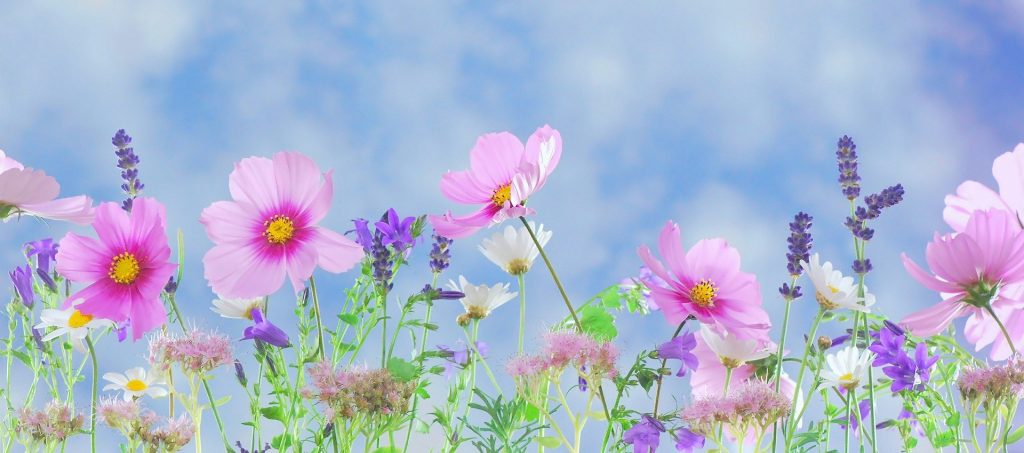
Good points – but where are the butterflies? (sorry, I couldn’t resist)
Great observation, Norm!
What timely observations, Carrie – and don’t we all feel a bit closer to God when we’re surrounding by Nature’s beauty? I do! Thanks for the reminder –